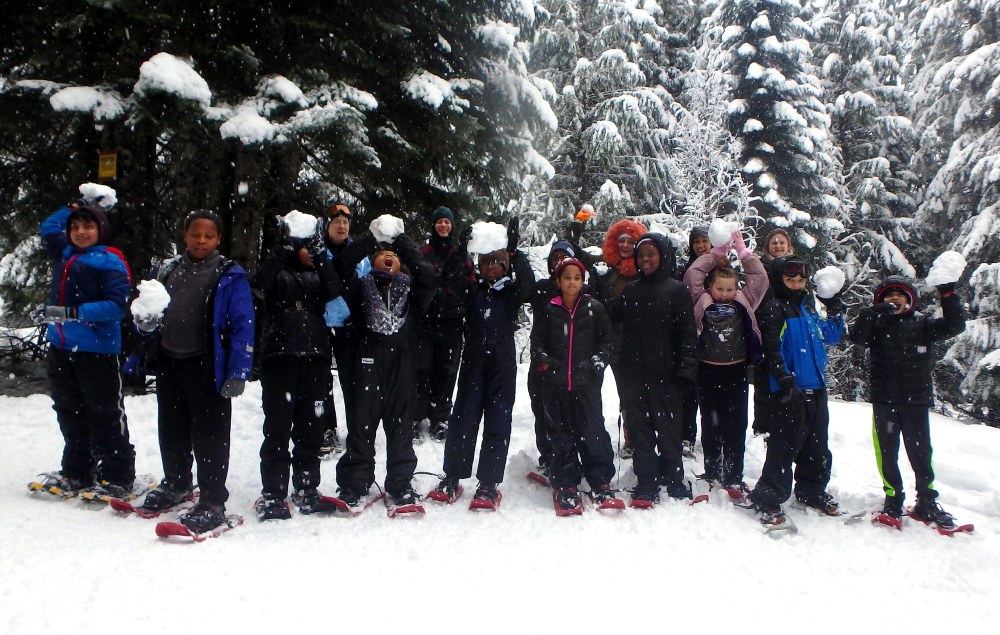
We’re thrilled to announce the introduction of bipartisan legislation that we’ve been working on for a number of years: the Public Lands Recreational Opportunities Improvement Act (PLROIA) - S.3550!
Introduced by Senators Martin Heinrich of New Mexico and Shelley Moore Capito of West Virginia, the bill improves the outfitter-guide permitting systems of federal land agencies so more Americans can experience public land through "facilitated" outdoor experiences."
What’s a facilitated outdoor experience? In short, it’s any group outing with instructors or leaders of some sort. Examples include volunteer-led nonprofit organizations like The Mountaineers as well as paid guides and outdoor schools.
Facilitated outdoor experiences are absolutely foundational to who we are as Mountaineers. Our volunteer-led trips and courses and our youth programs allow us to introduce people to the wonders of outdoor places. These experiences are transformational.
In addition to The Mountaineers, thousands of other organizations across the country – including private outfitters and guides, nonprofit groups, university recreation programs, and other volunteer-based clubs – depend on facilitated outdoor experiences.
Unfortunately, we all face a slew of permitting challenges when trying to take groups outside.
PLROIA will help streamline outfitter-guide permitting – an important step towards:
Improving Access and Equity
The Mountaineers outdoor education and conservation mission relies on our volunteers taking students outside on public lands to teach skills and introduce new recreationists to outdoor experiences.
Many people are first introduced to the outdoors through facilitated outdoor experiences. Groups are often from underrepresented and under-resourced communities, like our Mountain Workshops, which partners with local, youth-serving organizations. Better permitting processes will help get people outside who might otherwise not have the opportunity.
Inspiring Future Conservationists
People protect what they love. At The Mountaineers, our courses and trips connect people to public lands, and we’ve seen time and time again that this is the first step to becoming an outdoor advocate. Better permitting processes will help more people experience the value of public lands so they can be a voice to protect these wild places.
Supporting the Recreation Economy
Gateway communities to public lands depend on recreation as a vital economic sector. Better permitting processes will help more people support local shops, gas stations, lodges, and restaurants near public lands, especially in rural communities.
Founding a Coalition
In 2014, The Mountaineers helped found the Coalition for Outdoor Access (COA) - an alliance of organizations with the common interest of improving outfitter-guide permitting systems for all. We were, and continue to be, faced with similar regulatory challenges, like figuring out which activities need permits, deciphering availability, fees, and deadlines, and navigating the differences between various federal land management agencies.
Our broad-based coalition includes volunteer-based clubs, private outfitters and guides, university programs, outdoor industry companies, and conservation nonprofits. The Public Lands Recreational Opportunities Improvement Act represents years of work on behalf of all us.
As this groundbreaking bill begins to move through the legislative process, we’ll keep you updated on ways you can help it pass into law. Together, we can help all Americans seeking to enjoy our public lands.
Read COA's joint press release on the bill here.
More About The Public Land Recreational Opportunities Improvement Act
PLROIA contains provisions to:
- Make several important updates and revisions to current permitting law. Under PLROIA, agencies will be allowed to use a portion of recreation fee revenue to improve their system for processing recreation applications, making the system work faster for everyone. It directs the agencies to identify opportunities to streamline and simplify the permitting process, reducing delays for permit seekers and reducing costs for the agencies.
- Provide permit holders with certainty in the event of natural disasters, wildfire, or other circumstances beyond the permit holder's control. If a permit holder faces circumstances such as these, and is unable to run their outing, PLROIA directs the land agency to exclude the period of non-use when determining future allocations. This provides much-needed certainty for outdoor recreation service providers to sustain their operations through good seasons and bad.
- Authorize federal land management agencies to collaborate with one another and issue a single permit for activities that cross agency boundaries. This significantly reduces administration for the agencies and streamlines the permitting process for outfitters and guides. Similarly, PLROIA enables permit holders to conduct a variety of recreation activities under one permit, rather than issuing new authorizations for each activity. These measures will allow recreation service providers to focus on helping people access public lands and create lasting outdoor memories, rather than dealing with red tape.
- Provide exemption from indemnification requirements if a permittee is prohibited from providing indemnification to the United States by state or local law, an important step to improving federal lands access for public universities and local recreation departments.
- Enable new permit seekers to access a system of temporary permits that can be converted into a long-term permit after two years of satisfactory operation.
 The Mountaineers
The Mountaineers